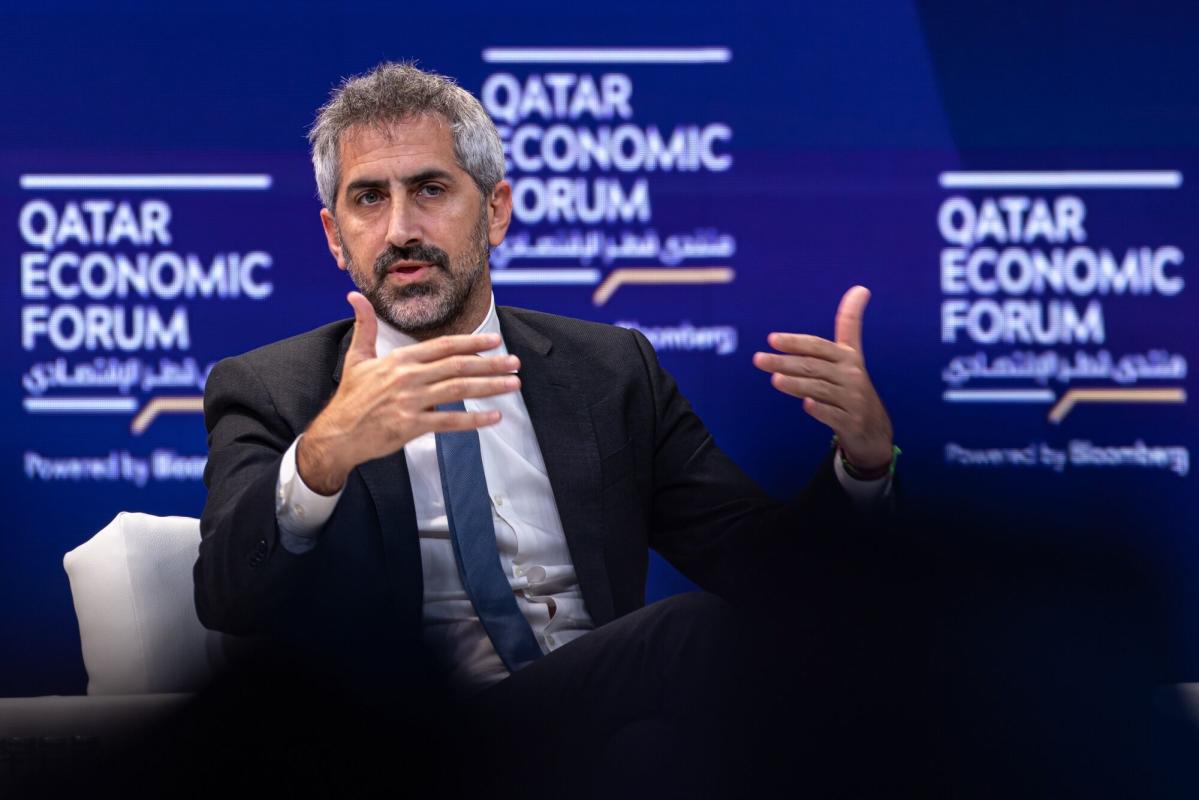
(Bloomberg) — Bridgewater Associates launched a fund that uses machine learning as the primary basis of its decision-making.
Most Read from Bloomberg
The vehicle debuted with almost $2 billion of capital from more than a half-dozen clients and began trading Monday, according to people familiar with the matter, who asked not to be identified discussing the strategy.
The hedge fund giant, led by Chief Executive Officer Nir Bar Dea, told investors that it’s leaning on its own proprietary technology that it’s been building for more than a decade. It’s an outcome of a broader venture spearheaded by co-chief investment officer Greg Jensen, and the new fund will also broaden to include models developed by OpenAI, Anthropic and Perplexity, among others, the people said.
The new fund will be run by Jensen. Westport, Connecticut-based Bridgewater has been testing the strategy since late last year with a small sleeve of its main Pure Alpha fund — about $100 million — to ensure the technology works, the people said.
Bridgewater declined to comment on the fund.
Bar Dea, 42, has been transforming Bridgewater since founder Ray Dalio ceded control in late 2022. The fund launch is the latest step in a years-long transition that also included a major management overhaul. Meanwhile, the Pure Alpha fund has climbed 14.4% this year through June 26 after more than a decade of mostly lackluster returns, including a 7.6% loss in 2023, people familiar with the matter said.
Bridgewater’s assets under management total $108 billion.
The push into machine learning is a “good manifestation of us taking the flag and putting it at the top of the mountain,” Bar Dea said in an interview, while declining to provide specifics about the new fund. “This is maybe the most significant and pure manifestation of the moment we’re in.”
It also has the potential to change the hiring strategy and composition of staff at Bridgewater to include more data scientists, said Jensen, 49, who has been thinking about how machine learning could impact the hedge fund’s investing since 2012. That year, Bridgewater hired David Ferrucci, who led the team of engineers responsible for Watson at International Business Machines Corp. He left the hedge fund firm in 2021, but remains an adviser.
Jensen, who has worked at Bridgewater since 1996, said he then committed his own money toward OpenAI’s first funding round almost a decade ago, and years later he wrote one of the first checks for Anthropic.
Statistician Jasjeet Sekhon, a professor at Yale University, was hired by Bridgewater as a chief scientist for the initiative in 2018. Early last year, the firm formed a division called Artificial Investment Associate Labs, or AIA. The venture combined technologies that include large language models, machine learning data models and reasoning tools.
Through the venture, Bridgewater built a way to use AI to understand casual relationships in markets, and is using it to generate returns. AIA’s technology is the primary decision-maker in Bridgewater’s newest strategy.
‘Giant Leap’
“The big jump here is using machine intelligence to generate the alpha — that is a leap,” Jensen said. “If this is a side hobby of people who normally have the responsibility of Pure Alpha, they wouldn’t be able to have the focus necessary to make this giant leap that we’re making.”
Jensen, who graduated from Dartmouth College with a degree in economics and applied mathematics — and won a gold bracelet at the 2022 World Series of Poker — discussed the strategy’s limitations.
Jensen said Bridgewater’s humans will still be overseeing a number of functions including risk management, data acquisition and trade execution to ensure the investing process is a complete one. He said a popular question from investors has been: “How do you prevent the machine from getting out of control?“
Large language models “have the problem of hallucination,” he said. “They don’t know what greed is, what fear is, what the likely cause-and-effect relationships are.”
Tests using the AIA systems included asking how asset prices would be affected if Donald Trump wins the November election and raises tariffs on Chinese goods. Bridgewater has also tried the AIA machine learning process to calculate the impact on bond prices under the Federal Reserve’s quantitative tightening process.
“You’re going to have intelligence that can read every newspaper in the world,” Jensen said. “Machines are better at finding patterns across times and across countries.”
(Updates with Ferrucci in ninth paragraph, reasoning tools in 11th.)
Most Read from Bloomberg Businessweek
©2024 Bloomberg L.P.
EMEA Tribune is not involved in this news article, it is taken from our partners and or from the News Agencies. Copyright and Credit go to the News Agencies, email news@emeatribune.com Follow our WhatsApp verified Channel





